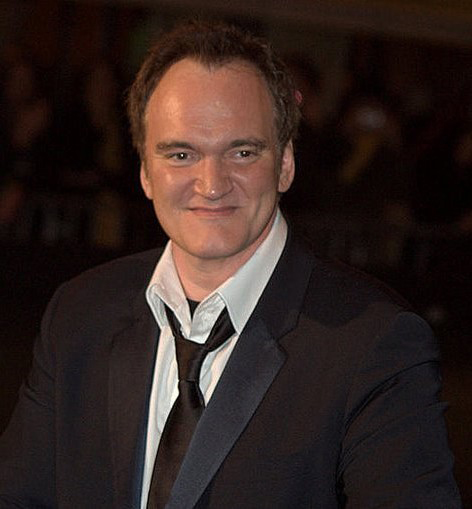Three steps to produce your own Quentin Tarantino epic

Quentin Tarantino is an acclaimed film director.
In December, director Quentin Tarantino (check out his full filmography here) released his seventh feature film, “Django: Unchained.” The film stars Jamie Foxx as Django, who goes from being enslaved to working as a bounty hunter.
Never one to shy away from violence or controversial subjects, Tarantino garnered plenty of criticism for “Django: Unchained.” Nonetheless, the film is a critical success, nominated for five Academy Awards.
Tarantino has an undeniable knack for making films that shock and entertain. Every film Tarantino has made since realeasing “Resevoir Dogs” in 1992 is a distinct piece of art, but each has certain things in common–three essential rules for making a successful Tarantino film.
RULE #1: Fall in Love
Write your script like you have a loaded grapple gun in your waist pants, and shoot your gun to the moon. Be so consumed with the epic of The Bride from “Kill Bill” that you will follow her to the bloody underbelly of Tokyo to watch the flailing limbs of the Crazy 88 become airborne in a miasma of blood.
Collective audiences have decided to let Tarantino transcend the 90 minute movie limit because when we get to the 90 minute mark, we crave his rousing, cinematic ambition.
There are surely other cinematic minds that could envision movies with the kind of creativity that Tarantino works from, but only a handful of them make their movies. Directors like Tarantino get to the moon first.
RULE #2: Have No Fear
Twist like no one is watching. Drink a five dollar milkshake. Drink it because, in the end, if you don’t go all the way, history will hold it against you. That is what Tarantino told Leonardo DiCaprio when he portrayed the foul and deplorable plantation owner Calvin Candie in “Django: Unchained”.
DiCaprio was initially resistant to the brutal racism and language of his character, but when Tarantino assured him that it was the extremity of the character that would add to the victory of the Django, DiCaprio went all the way.
RULE #3: Don’t Go to Sleep to Dream
Be aware of the magic and absurdity of real life. Tarantino’s movies are unique because they are a collection of film history references and genre experimentation. His body of work contains technique ranging from rhythmic action sequences to Hitchcockian table dialogue.
Tarantino may make movies that could only exist in the most fantastic pulp novels, but he explores common literary themes with his singularly explosive enthusiasm and uniquely absurd vision. When the invulnerable Bride finishes off her last kill of retribution, she does not walk into the sunset like some Western anti-hero, she drives away with her daughter.






